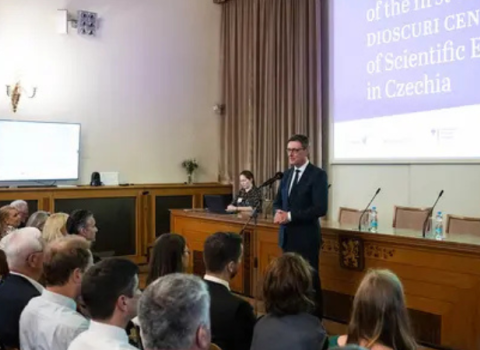Protests follow decision to move four humanities and social science research centres to Eötvös Loránd University

Hungary's Prime Minister Viktor Orbán. Photo credits: European People's Party / Flickr
The Hungarian academic and research community is protesting to the government over the Hungarian Research Network’s decision to transfer four of its humanities research centres to Eötvös Loránd University.
On June 21, one day after the research network’s governing board approved the move, a group of Hungarian research heads, including European Research Council grant recipients, sent an open letter to Prime Minister Viktor Orbán, warning that the transfer would “cause historically significant harm to the entirety of Hungarian scientific life.”
The Hungarian Academy of Sciences, which operated the institutes until they were taken over by the Hungarian Research Network in 2019, condemned the decision as “mistaken,” warning that it could lead to the “disintegration of the research network” and disrupt the entire Hungarian research system. The academy had already issued a pre-emptive statement opposing the separation of the humanities and social sciences from the unified research network.
In an interview with Science|Business, former academy president László Lovász said he had spent a year negotiating to keep the network intact. “This agreement is violated now,” he said. “[Eötvös Loránd] is an excellent university, but it will be very difficult to integrate the four research centres, which have different tasks, rules and traditions.”
The Hungarian Academy Staff Forum, a civil initiative formed to defend academic freedom and researchers' rights after the 2019 restructuring, issued a statement accusing Orbán of dismantling the country’s only basic research network and exerting political pressure to enforce the transfer. “Orbán’s power game continues,” it concluded.
University’s role contested
The original proposal to transfer the institutes came from Lénárd Darázs, the incoming rector of Eötvös Loránd University. The Hungarian Research Network governing board approved the plan in a 6–2 vote on June 20. The university senate then voted on July 8 to take over the four humanities research centres.
Balázs Gulyás, president of the Hungarian Research Network, told Science|Business that the transfer would improve the management and operations of the institutes.
However, the process and narrative surrounding the decision have drawn criticism.
Viktor Olivér Lőrincz, president of the Hungarian Academy Staff Forum, told Science|Business that several questions remained about the role Darázs had played. At the time of the proposal, Darázs was still vice-rector and had not yet assumed the position of rector (his term only begins on August 1) raising doubts about his authority to make such a significant offer.
Lőrincz also pointed to the aftermath of the governing board’s vote. Three of its eight members—Enikő Bollobás, Veronika Ádám, and Melinda Kovács—resigned following the decision.
Former Hungarian Academy of Sciences president Lovász added that, while he lacks direct insight into the internal discussions, “the outcome [. . .] shows how deep the disagreement was even within the governing board.”
Science|Business reached out to all three former board members for comment. Ádám refused to comment on matters related to the network as she is no longer a member of the governing board, while the others did not reply.
Finally, responding to Gulyás’s justification that the transfer would help develop the institutes, Lőrincz said that if the problem lies in the institutes’ ability to interface with other scientific domains, transferring them to Eötvös Loránd, a university facing similar structural issues, will not resolve it.
Moreover, Lőrincz criticised the decision to proceed with the transfer without any consultation with the affected researchers or scientific leadership, noting that less than a week passed between the initial notification and its implementation.
Lovász also pushed back against Gulyás’s claims. “It is an almost unanimous opinion in the research community that research conditions in small independent institutes are much better than at big institutions like universities, where basic needs like buying new equipment is infinitely slower and more bureaucratic,” he told Science|Business.
He added that the lack of a clear rationale for the move raises concerns that the real aim may be to “slowly wither away the humanities, in particular social science research institutes through financial pressure.”
According to the Hungarian Academy Staff Forum, Eötvös Loránd is among the most underfunded universities in Hungary. “Both Eötvös Loránd and the research institutes already face severe lack of funding; their merger will not solve but rather will only deepen these problems,” the letter to Orbán stated.





 A unique international forum for public research organisations and companies to connect their external engagement with strategic interests around their R&D system.
A unique international forum for public research organisations and companies to connect their external engagement with strategic interests around their R&D system.